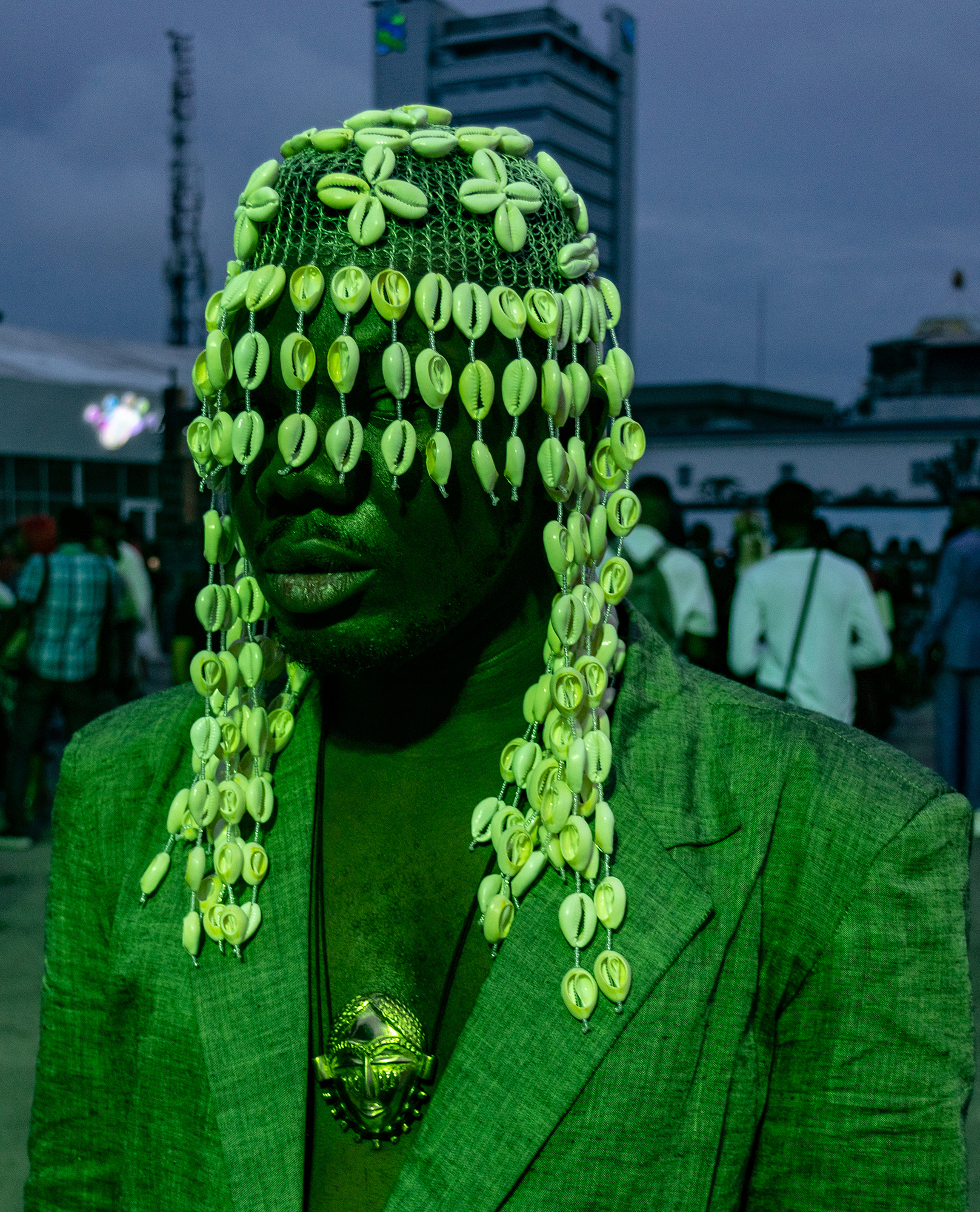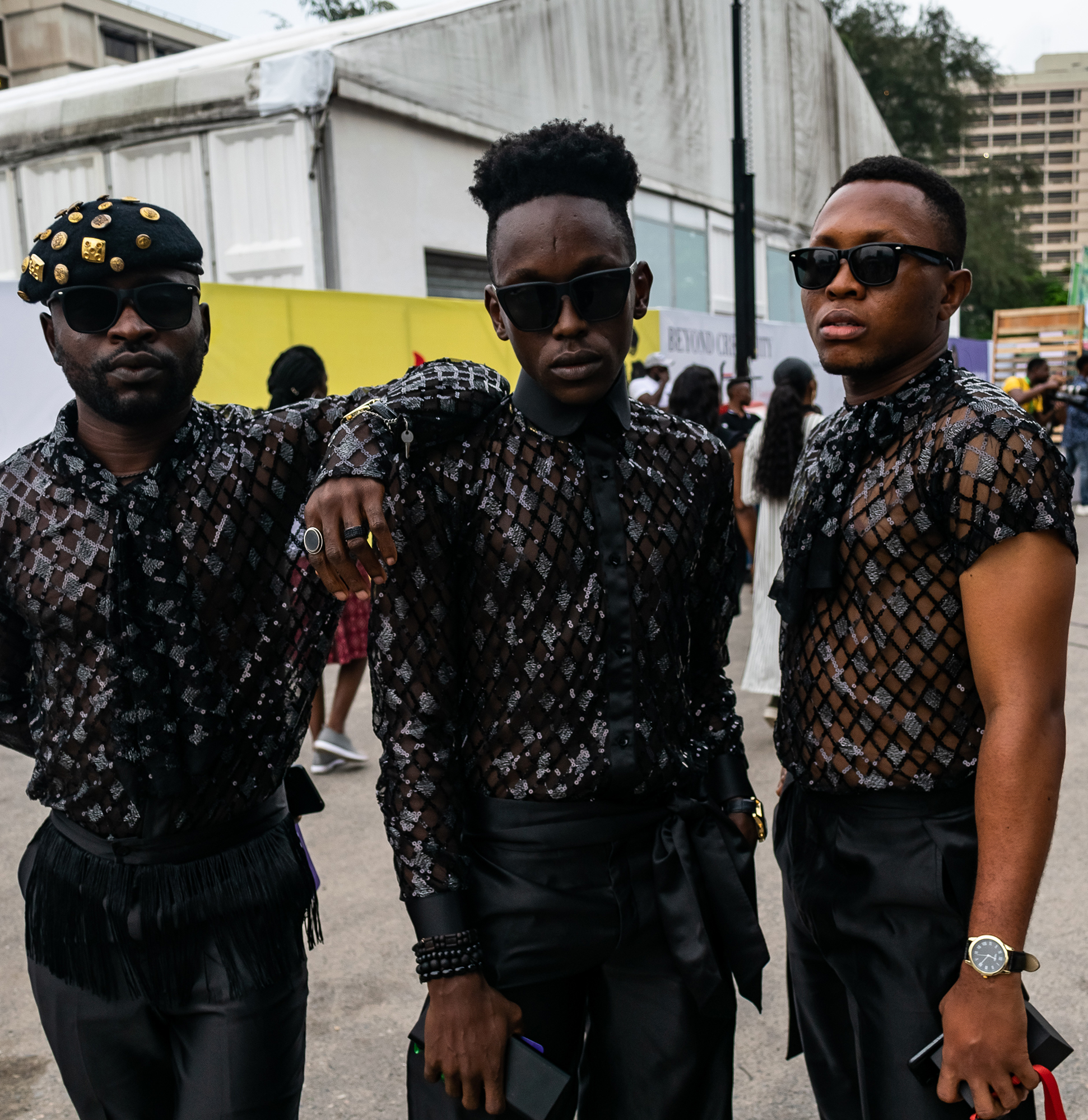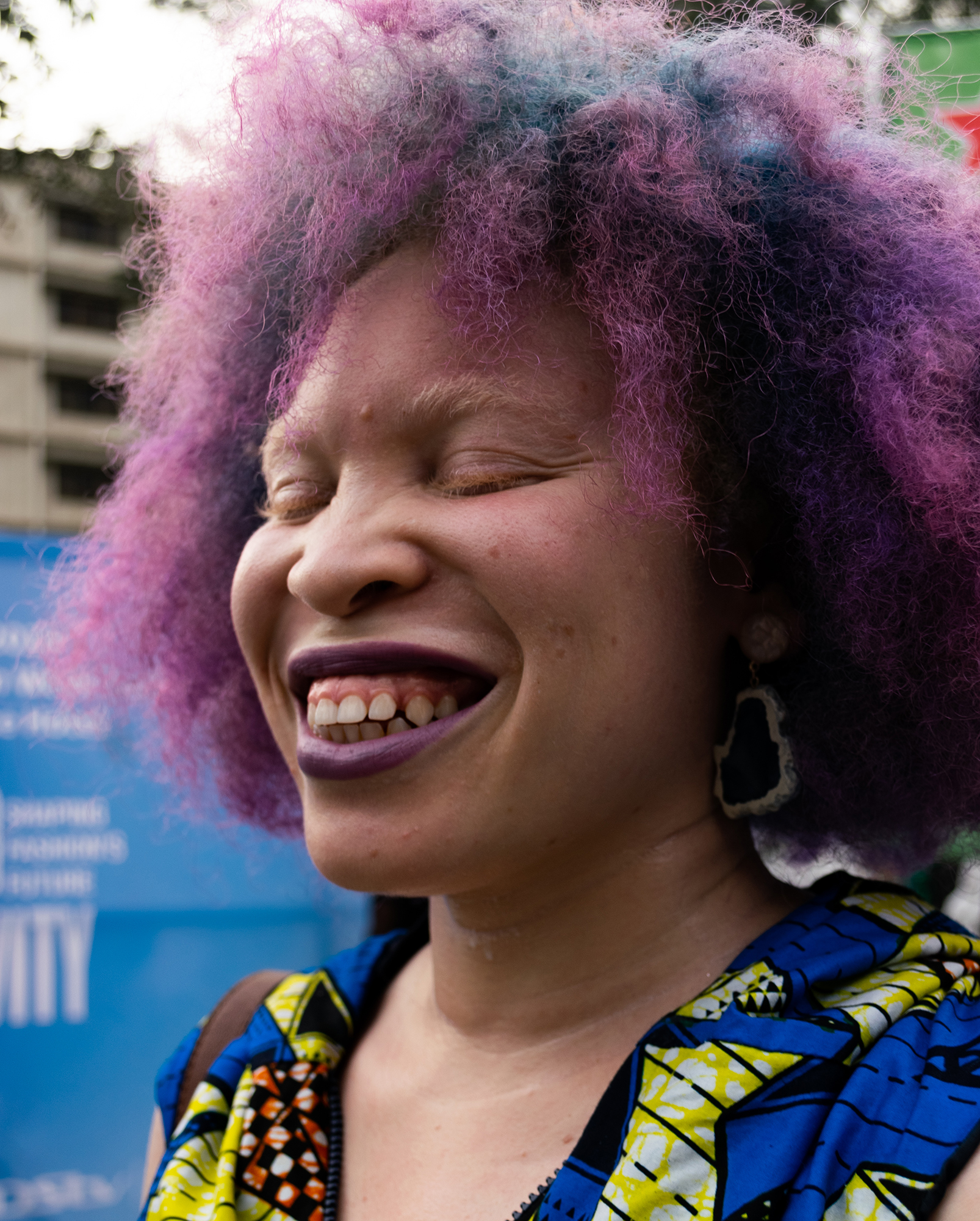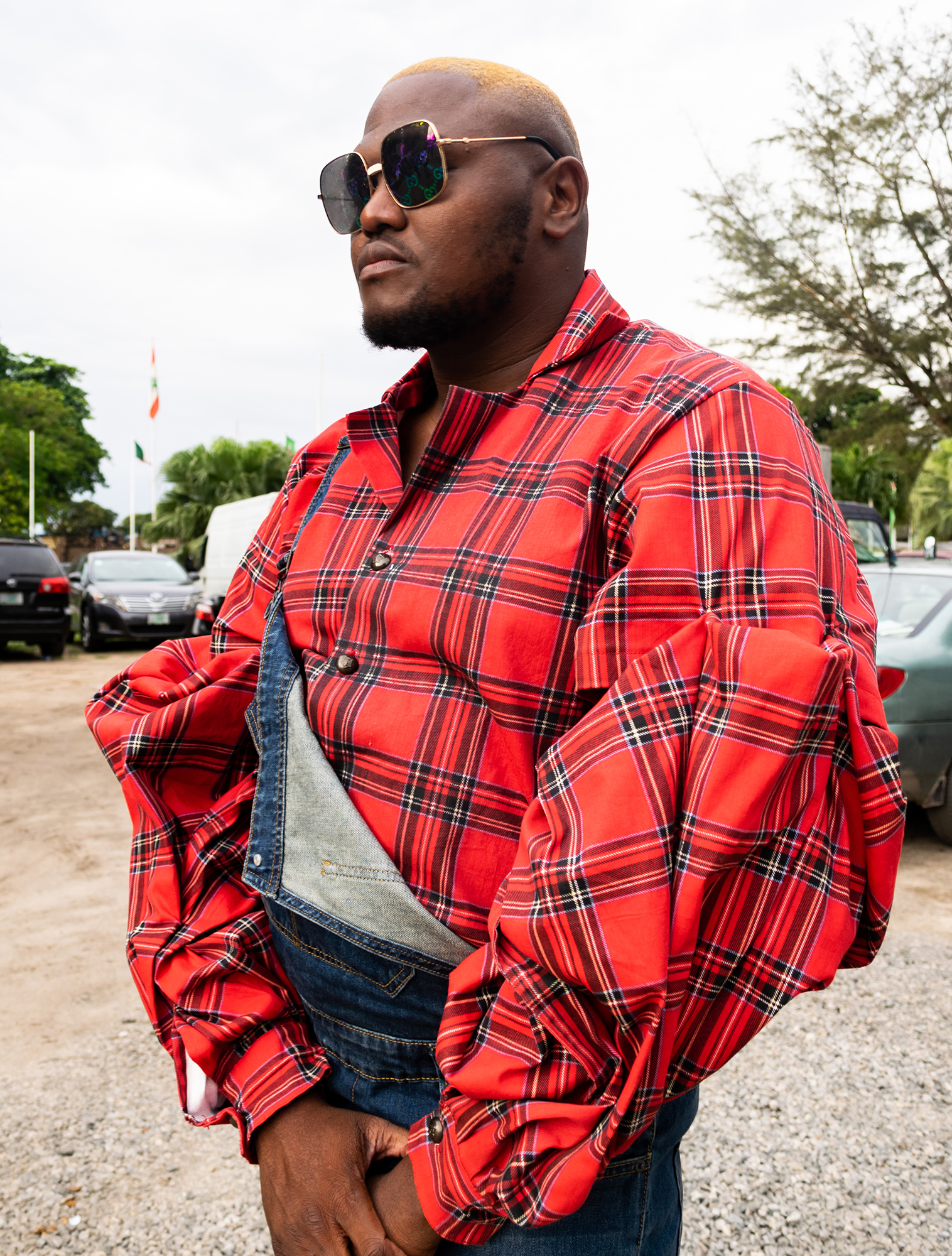Lagos Fashion Week Helps Nigerian Youths Embrace Self-Identity
Inside the rebellious national fashion event that acts as a cultural movement

Fashion-forward people giving their fiercest poses in front of the cameras come as no surprise at fashion week. The clothes are larger than life with personalities to match. As normal as this might be at every fashion week around the globe, for Nigerians, there is a deeper meaning behind the clothes. The story as to why that boy paired a short with a cape and why that girl wore a sheer dress goes beyond being fashionable and daring.

Nigeria continues to be a country masked heavily with religion. These beliefs dictate societal norms and trumps democracy. It’s the reason why wearing certain outfits are frowned upon. And why homosexuality was made illegal in the country and attracts a 14-year imprisonment as punishment while for the states under Sharia Law, death. These religious beliefs are, sadly, selective. Child marriage, one of many, is practiced and accepted in some parts of the country.
Actions are labeled good or bad and judged by the standards of societal norms and traditional ideologies. Cases of women who are harassed, mocked and assaulted for the way they’re dressed arise often. A woman who wears a short skirt down the street is outrightly called a prostitute. The idea of a man wearing genderfluid outfits, at all, is forbidden.
This tradition continues to deter progression. What this does is it creates a toxic socio-political climate. One where people live in fear and self-loathe. “I am conscious of the society we live in because it is harsh for people who want to be who they are when it’s not the norm,” says Fola Francis, a Lagos-based writer, and stylist. “I can’t wear what I want from home, the first time I did, I was verbally harassed as I walked down the street. So what I do is take my clothes and change in the taxi on my way to the shows.” Francis’ story is similar to others at the show. People who sacrifice being themselves for safety.

The extremity of this is taken a step further by law enforcement agents who tag anyone with dreadlocks and/or tattoos a criminal. Cases of boys being arrested, beaten and killed because of their hairstyles, body tattoos or dressing come up so often, it’s become normal and expected. Like the story of Glory. One day, on his way to work, he was stopped by policemen, questioned, and searched. His phone was confiscated. They went through his messages. Eventually, they took the phone with them and left him stranded. His crime? He had dreadlocks. A society that prides itself on tradition has overlooked the history of dreadlocks and its importance to the black man.

Asides fashion week, no other show gives the freedom and liberation for self-expression. What fashion week stands for in Nigeria goes beyond new collections for the new season. It’s a community of progressive people free of judgment. A haven where people are who they are and wear what they want. “It’s important how Lagos Fashion Week has given a platform for creatives to express themselves,” says Mary Edoro, a fashion editor. “It’s a no-judgment zone where people can express who they are, their sexualities, their political thoughts and that’s the only way to change things; by expressing our true feelings about what we think about what’s going on.”

Discover More
